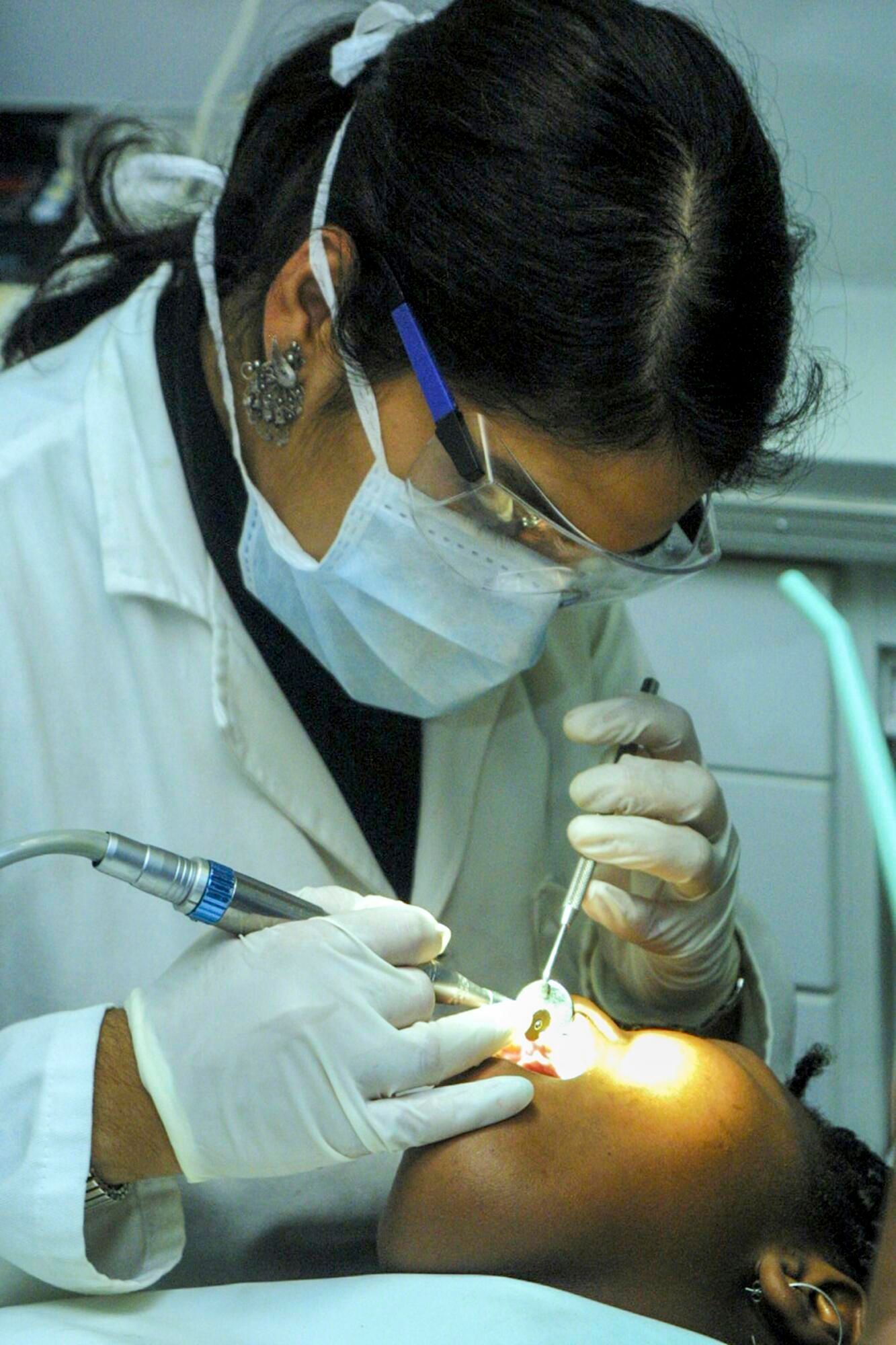According to a 2022 study published in the Journal of Oral Medicine and Oral Surgery, up to 7 percent of dental implants fail within the first few years, often due to inadequate daily care. Strong, lasting implants depend on consistent habits; this dental implant maintenance guide lays out clear steps to keep them healthy for decades.
Simple changes, such as careful cleaning, making smart eating choices, and regular check-ups, can make a significant difference. When gums stay firm and implants feel secure, every smile comes with confidence.
Small steps taken today can protect your investment and keep that confident smile shining for years to come. Read on to see how small actions today can shape the future of your dental health.
1. Daily Brushing and Flossing
Keeping implants clean every day is key to long-term success. A soft-bristle toothbrush works best to avoid scratching the crown or damaging gum tissue. Use non-abrasive toothpaste to keep surfaces smooth and stain-free.
Flossing around implants is just as vital as brushing. Special floss or interdental brushes help remove plaque in places a regular brush cannot reach. These tools keep bacteria from building up and causing gum inflammation.
Rinse with an antibacterial mouthwash once a day. This reduces the presence of harmful microbes and keeps your breath fresh.
Here's a quick checklist for daily care:
- Use a soft-bristle toothbrush
- Non-abrasive toothpaste
- Interdental brush or floss
- Antibacterial mouthwash
Daily care habits build a strong defense against implant problems.
2. Regular Professional Check-Ups
Professional dental care is essential for spotting early signs of trouble. Dentists can detect minor wear, gum issues, or bone changes before they become serious.
Check-ups every six months help maintain the structure supporting your implants. A professional cleaning removes tartar that brushing at home can miss.
Your dental maintenance checklist should include questions to ask during each visit. Ask about gum health, implant stability, and cleaning methods.
A good visit often includes:
- Thorough implant cleaning
- Gum health assessment
- Bite alignment check
- Stability testing
Professional oversight is the best insurance for implant longevity.
3. Nighttime Protection
Many people grind their teeth while sleeping without realizing it. This habit puts enormous pressure on implants and can shorten their lifespan. A custom-made nightguard spreads the force evenly and cushions your teeth.
If you already wear a nightguard, check for wear and replace it when needed. A damaged guard won't protect your implants effectively.
Add this step to your oral health routine to keep implants safe while you rest. Combine it with regular jaw relaxation exercises before bed for extra protection.
Key points for night protection:
- Use a custom nightguard
- Replace if worn
- Relax jaw muscles
- Avoid hard snacks
Protecting implants while you sleep is one of the simplest implant longevity techniques.
4. Avoid Harmful Habits
Certain habits can damage implants faster than you think. Smoking reduces blood flow to the gums, making healing slower and weakening the bone. Chewing hard foods, like ice or hard candy, can chip crowns or stress the implant post.
Your dental maintenance checklist should highlight these as high-risk actions to skip. Drinking too many sugary drinks can also raise the risk of gum disease. Alcohol in excess can irritate gum tissue and result in a slow recovery from dental procedures.
Simple swaps can help you avoid trouble:
- Quit smoking now
- Skip hard snacks
- Limit sugary drinks
- Reduce alcohol intake
Small changes in daily choices can lead to big gains in implant longevity.
5. Balanced Nutrition for Implant Support
Nutrition plays a direct role in gum and bone strength. Calcium-rich foods, such as dairy products or fortified plant-based milks, help maintain the jawbone that supports dental implants. Vitamin D boosts calcium absorption and supports healing.
Include nutrient-dense foods in your meals and snacks. A balanced plate helps your implants stay secure and functional for years. Omega-3 fatty acids from fish, walnuts, or flaxseeds can reduce gum inflammation.
Nutritional tips for implant health:
- Eat leafy greens
- Add dairy or alternatives
- Include omega-3 sources
- Get vitamin D daily
Strong gums and bone come from the inside out.
6. Protect Implants During Sports
Contact sports and even some gym activities carry a risk of mouth injury. A single hit can crack a crown or loosen an implant. Wearing a custom-fitted sports mouthguard shields teeth and gums during high-impact movement.
Choose a guard designed for your mouth; over-the-counter models often fit poorly and offer less protection. Keep the guard clean by rinsing after each use and storing it in a ventilated case.
Sports safety checklist:
- Use a fitted mouthguard
- Clean after use
- Store in a ventilated case
- Replace when damaged
One small piece of gear can save years of dental work.
7. Stay Hydrated
Water keeps your mouth clean and your gums healthy. Drinking enough throughout the day helps wash away food particles and bacteria before they can cause trouble. It also keeps your mouth from drying out, which reduces the risk of gum irritation.
Carry a refillable water bottle to make hydration easy. Limit drinks high in sugar or acid, as they can damage both natural teeth and implant crowns. Herbal teas without added sugar can be a good alternative.
Hydration tips for oral health:
- Drink water often
- Limit sugary drinks
- Avoid acidic sodas
- Try herbal teas
A hydrated mouth is a healthier mouth.
8. Use the Right Tools
The right dental tools make daily cleaning easier and more effective. Electric toothbrushes with soft bristles can remove more plaque without damaging gums. Interdental brushes or water flossers can clean around implants better than regular floss for some people.
Ask your dentist which tools fit your needs best. Replace toothbrush heads every three months or sooner if bristles fray. Keep your equipment clean and stored in a dry space to avoid bacterial growth.
Smart tool choices include:
- Soft-bristled brush
- Electric toothbrush
- Water flosser
- Interdental brush
Better tools mean better results for implant care.
9. Manage Overall Health
Your general health impacts implant success. Conditions like diabetes or gum disease can weaken implant stability over time. Keeping these issues under control helps your mouth heal faster and stay healthier.
Regular exercise, balanced meals, and adequate sleep all play crucial roles in maintaining oral health. Avoid extreme diets or high-stress lifestyles that could weaken immunity. Schedule routine medical check-ups to catch any changes early.
Whole-body wellness steps:
- Control blood sugar
- Eat balanced meals
- Exercise regularly
- Sleep 7-8 hours
Healthy body, healthy smile, strong implants.
10. Follow a Personalized Care Plan
Every implant case is unique. A plan created with your dentist ensures that care is tailored to your mouth's specific needs. This may include more frequent cleanings, tailored brushing techniques, or specialized tools to reach specific areas.
Review your dental maintenance checklist during each visit and update it as needed. Lifestyle changes, new medications, or health conditions can all affect implant care. Keeping your plan current makes it easier to prevent problems before they start.
Personalized care steps:
- Review the plan often
- Adjust for lifestyle changes
- Discuss tools with the dentist
- Monitor gum health
A plan made for you is the key to long-lasting results.
Additional Considerations
Caring for dental implants is more than daily cleaning. Several lifestyle and health factors can affect how well implants perform over time. Thinking ahead and making a few strategic choices can make a big difference in implant longevity.
Stress management is often overlooked. High stress can lead to jaw clenching or teeth grinding, which puts pressure on implants. Incorporating relaxation techniques, such as deep breathing or light stretching, can help protect your smile.
Travel plans should also include oral care preparations. Pack your dental hygiene toolkit: a soft toothbrush, non-abrasive toothpaste, floss, and antibacterial rinse. If traveling abroad, research local dentists in case professional dental care is needed unexpectedly.
Hormonal changes can influence gum health. Pregnancy, menopause, or certain medications may make gums more sensitive or prone to inflammation. Discuss any changes in health with your dentist so your dental maintenance checklist stays accurate.
Environmental factors, such as extreme temperatures, dry climates, or high altitudes, can impact oral comfort. Staying hydrated, using gentle mouth rinses, and avoiding harsh whitening products during these times can prevent irritation.
Additional implant longevity techniques worth noting:
- Manage stress daily
- Prepare for travel
- Monitor hormonal changes
- Stay aware of the environment
Being aware of these less obvious influences helps you protect your implants from every angle.
When you add these considerations to your oral health guide, you strengthen your ability to maintain healthy gums and secure implants. Each small precaution reduces risk and increases comfort, making your care routine even more effective. Strong, confident smiles come from both daily habits and smart long-term planning.
Dental Implant Maintenance Considerations
Keeping implants healthy takes daily effort and regular professional care. Following simple steps in dental implant maintenance protects your investment and helps your smile last longer.
At TERSA Oral & Facial Surgery, your smile is sculpted with precision and care. Led by Dr. Andrés E. Guerra-Andrade, a board-certified oral and maxillofacial surgeon, the practice combines advanced techniques with a compassionate touch.
Whether you're considering single-tooth restoration or All-on-4® full-arch implants, each treatment is tailored to your needs, ensuring both functionality and aesthetic harmony. Experience the difference of a personalized approach to dental implant care.




